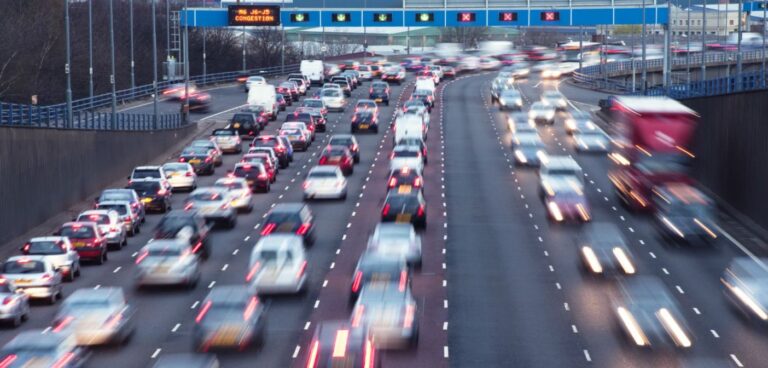The number of the most polluting vehicles entering Birmingham city centre has fallen by more than half since the clean air zone (CAZ) was introduced a year ago, the council has reported.
Birmingham City Council said the scheme, which aims to change driver behaviour by applying a daily charge to the most polluting vehicles coming into the city centre, has improved air quality in the past year and reduced the most polluting traffic from 18.7% to 9.2% within the year. Furthermore, in the first six months of the scheme, nitrogen dioxide levels in the city centre fell by 13%.
Cllr Liz Clements, the council’s cabinet member for transport, said: “This month marks the first anniversary of Birmingham’s clean air zone.
“I am pleased to say we have made good progress towards our goal of improving air quality in the city centre but we cannot rest on our laurels, so we are offering some additional support to help accelerate our journey to becoming a clean air city and to help improve the lives of everyone who lives and works in the city.”
Figures show that 98% of buses and 95% of HGVs entering the CAZ meet required emissions standards. Vans make up nearly one in 10 of all vehicles that enter the CAZ, of which 79% meet the emissions standard.
Birmingham City Council said the CAZ had reduced the most polluting traffic from 18.7% to 9.2% within the year and contributed to a reduction in nitrogen dioxide by 13% in the first six months of the scheme.
Figures show that 98% of buses and 95% of HGVs entering the CAZ meet the required emissions standards. Vans make up nearly one in 10 of all vehicles that enter Birmingham’s CAZ, of which 79% meet the emissions standard.
To help boost compliance further, SMEs based in the West Midlands who use LGVs in their fleet may be able to apply for grants of up to £4,000 per vehicle to help fund upgraded or replacement vehicles.
In addition, the council has increased the ultra-low emission vehicle (ULEV) grant available to Birmingham-licensed private hire and Hackney carriage drivers.
Both groups can now apply for a grant of up to £10,000 to cover operating expenses associated with running a ULEV. Previously, the grant available was up to £2,500 or £5,000 respectively.





